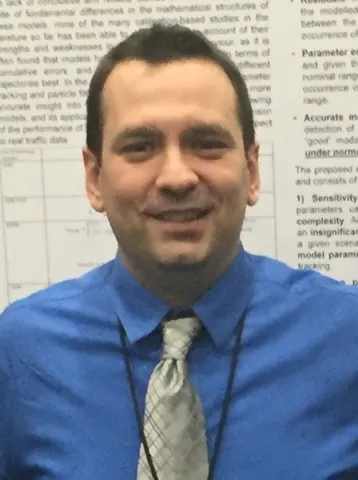About the project
Cycling is an increasingly popular mode of travel in cities due to the great advantages that it offers in terms of space consumption, health and environmental sustainability. Yet, the low perceived safety of cyclists is a major hurdle to the desired uptake of cycling as an alternative to the private car, with a particular source of hazard originating from the interaction of cyclists with motorised traffic at low speeds in urban areas. Accident numbers, unfortunately, confirm this perception as reality: in 2022 there were as many as 85 cyclist fatalities in Britain, and these were only a small part of a staggering 15,689 cyclist casualties in the same year.
But despite cyclist accidents being widely-acknowledged as a critical issue, a practical solution for their prevention has yet to be developed. This is because there is currently a lack of understanding of the mechanics and behavioural traits of cyclist-vehicle near-miss and crash situations due to the absence of the relevant enabling technology for their analysis on the one hand, and of accurate trajectory prediction models that would allow preventive action to the taken on the other.
This PhD project will address this gap through a three-pronged approach:
- By developing a technological solution that will allow accurately mapping bicycles and motorised vehicles in relation to one another.
- By formulating and validating trajectory and conflict prediction models with a time horizon of 5-10 seconds.
- By designing relevant preventive actions and mechanisms.
To this end, it is planned to nurture the potential of key research facilities available at the Transportation Research Group (TRG), such as a fully instrumented vehicle and bicycle for field data collection, and a driving simulator or a 360-degree virtual reality facility for validation.
The successful candidate should have a solid background in engineering or another quantitative discipline, as evidenced by a good first degree and any other additional qualifications, as well as a lively interest in transport applications.
This is a unique opportunity to join the university’s prestigious Transportation Research Group (TRG) in the School of Engineering. The TRG is based at the university’s Boldrewood Innovation Campus and is one of the UK’s longest running academic transport centres, with over 50 years of research into improving all aspects of transport and mobility systems. It consists of 29 staff and 34 PhD researchers, and has a portfolio of over £8 million in grants and contracts, as well as a wide range of facilities supporting its research.
